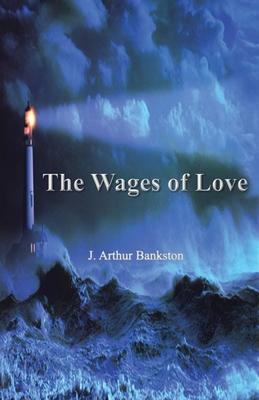Nathan Whitehurst is a married and devoted pastor who loves the people of his church and the Lord he serves. But he also loves Sumiko, a woman who is not his wife, who has become the passion in his every breath and heartbeat. He no longer wants Jolene, not a kiss, not a hug, not a word of kindness. He looks at her with utter contempt, a contempt already in place when Sumiko came into his world.
The church perceives that Nathan and Jolene are the perfect Christian couple. So, how can they greet the congregants standing side by side with smiling faces, then go their separate ways to the arms of others? How can she profess allegiance to the faith when she imagines Jesus as nothing more than a myth? How can he stand in the pulpit to preach the Gospel or counsel others on the sanctity of marriage? Then again, how can he not? The ministry is his calling, a calling that is deep and abiding.
Nathan's spirit is in turmoil, his emotions a study in paradox: love and hate, commitment and abandonment, freedom and bondage, honor and betrayal. He and Sumiko are convinced that fate has made them one, and fate cannot be ignored or dismissed. They believe to the cores of their beings that at the hours of their births, they were tethered by the gods to a virtual string, the red string of fate, that wound its way through nations and decades, then crossed a mighty ocean, yet never broke or frayed. Thus, Nathan is persuaded that Sumiko is his destiny, and Sumiko is persuaded that Nathan is hers.
The pastor longs to have peace in his soul, but it too often seems that God is now his accuser and accuses without merit. Nathan wrestles with the Lord in defiance, willing to challenge the Almighty for what is written in His word. Foremost is David, who ordered the murder of Uriah so he could lay claim to Uriah's wife. Yet, the hand-chosen king of the Divine, whom the scriptures declare was a man after God's own heart was allowed to keep Bathsheba. Why could Nathan not have Sumiko and still pursue the heart of God?
Why must he struggle with the fear of eternal Hell? Does it even exist, or is it merely an empty threat to keep God's children in line? Are we imbued with free will, or are we victims of forced induction, who live in terror of a heinous abyss? Is the Bible simply rules for the mindless, who cannot think and reason for themselves? If it is truly inspired by God, why all the contradictions? Why all the anger and vengeance at the Creator's behest? If He is not the author of confusion, why is there so much confusion?
If living sinless lives is required, did Christ die for our sins in vain? Are the Cross and its purpose only legend? Why should Sumiko be treated as forbidden fruit? For Nathan, it is better to be cast with her to the east of Eden than shackled to Jolene in the splendor of the Garden. Still, no matter how intense his bewilderment, Nathan's love for the Lord is profound; he cannot bear to be outside His will and presence. He yearns for harmony with Heaven, but Sumiko will not be the price. It is a war of the heart that cannot be won and must not be lost.
